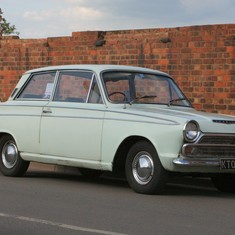10 Things You Need to Know Before Buying a Used Car | Midas
Midas Car Care Tips
You’ve found what you believe is the perfect car, but you want to run it through a vehicle check to be absolutely sure. Hopefully the check yields nothing, but before you buy a used car it is always essential to know exactly what you’re getting yourself into. There are some other things you can do to make sure you don’t back yourself into a corner.
The Midas mechanics team see the end results of a lot of buys gone wrong, so we know what you need to. Here’s a checklist of the ten things you absolutely have to know before getting a used car.
The Pre-Purchase Checklist
1. Vehicle Inspection Number (VIN)
A Vehicle Inspection Number (VIN) is a string of numbers and letters 17 characters long, found on the body of your vehicle. If your vehicle was originally registered or re-registered before April 1994 then it must have both a chassis number and a VIN. If it was registered after that time, it only needs to have a VIN.
If it has been altered or tampered with in any way, that vehicle is now no longer able to be registered, and it will not pass any following inspections. If it doesn’t have a VIN, that could indicate your car is stolen. Check the VIN number to see the vehicle’s history and check for anything you should know about.
2. Check for Any Recalls
Check on the Government Safety Recalls Database to see whether the car’s model has been recalled for any reason. Cars are usually only recalled for significant safety reasons, and the model numbers are very specific, so make sure to ask the seller for the model number before buying.
3. Check the Electronics
Turn the car on, and make sure that the dashboard is clear of any check engine lights or any other warning lights. If no lights come on at all, then this is a sign that your car’s electronics are faulty and need repair. If the seller is private, then they are not obligated to repair this before you buy, but if it’s a commercial seller or a dealer then they must have the electronics repaired before proceeding with the sale.
4. Damage to the Body
Small bumps and scrapes, or even a replaced bumper, are not major enough issues to prompt a car repair; many used cars have a ding or two. What you need to watch out for is damage to the chassis or actual structural frame of the car. Damage like this from a crash or other kind of bump can evolve into structural weakness, and if you have a crash, the crash cage (which prevents the driver from getting crushed in a collision) won’t hold up nearly as well as it should.
5. Hidden damage
There can be less obvious forms of damage as well, like rusting beginning in the frame, or water damage from rain or flood.
Rusting causes weakness, and that is not something you want, for the same reason you don’t want damage to the chassis. Water damage can also ruin the upholstery of your vehicle and cause mould, making it potentially very difficult to manage, and subsequently sell when you’re trading up again.
6. Road User Charges (RUC) and License Fees
Ask the person selling the car if they have paid all of the road user charges and any unpaid license fees for the vehicle. Also, make sure that they are going to let the New Zealand Transport Agency know that they have sold their vehicle, so that it is no longer registered in their name. This could impact on your ability to get vehicle insurance.
7. Residual Loans
Make sure the seller has no remaining loans or security interest on the car, because as the registration for the car passes into your name, it is still considered security for previous loans. This means if the seller fails to pay off a loan they took out with the car as collateral, the car can be repossessed and taken away, even though the loan had nothing to do with you.
8. Make an Agreement
Consider making an agreement of your own with the seller.
If you’re buying privately, the seller is not held to the Consumer Guarantees Act or the Fair-Trading Act, so it’s very hard to bring them up on their verbal agreements to give you a functioning car if you don’t have something written down and signed by both of you. Protect yourself with a document you can refer back to.
9. Recent Warrant of Fitness (WOF)
Make sure the Warrant of Fitness is no more than a month old. While this is not the only indicator of a road-safe car, it is a good indication that the car is in good enough shape to be functioning.
10. Get a Pre-Purchase Vehicle Inspection
At Midas NZ, we have what we call a Peace of Mind Inspection. Before you buy a used car, run it by us and we’ll cast an eye over it to check for any faults you should be worried about. We also check for anything that could become an issue in the coming years, like a cambelt that’s just starting to wear down.
Find your nearest Midas and get your peace of mind today.


